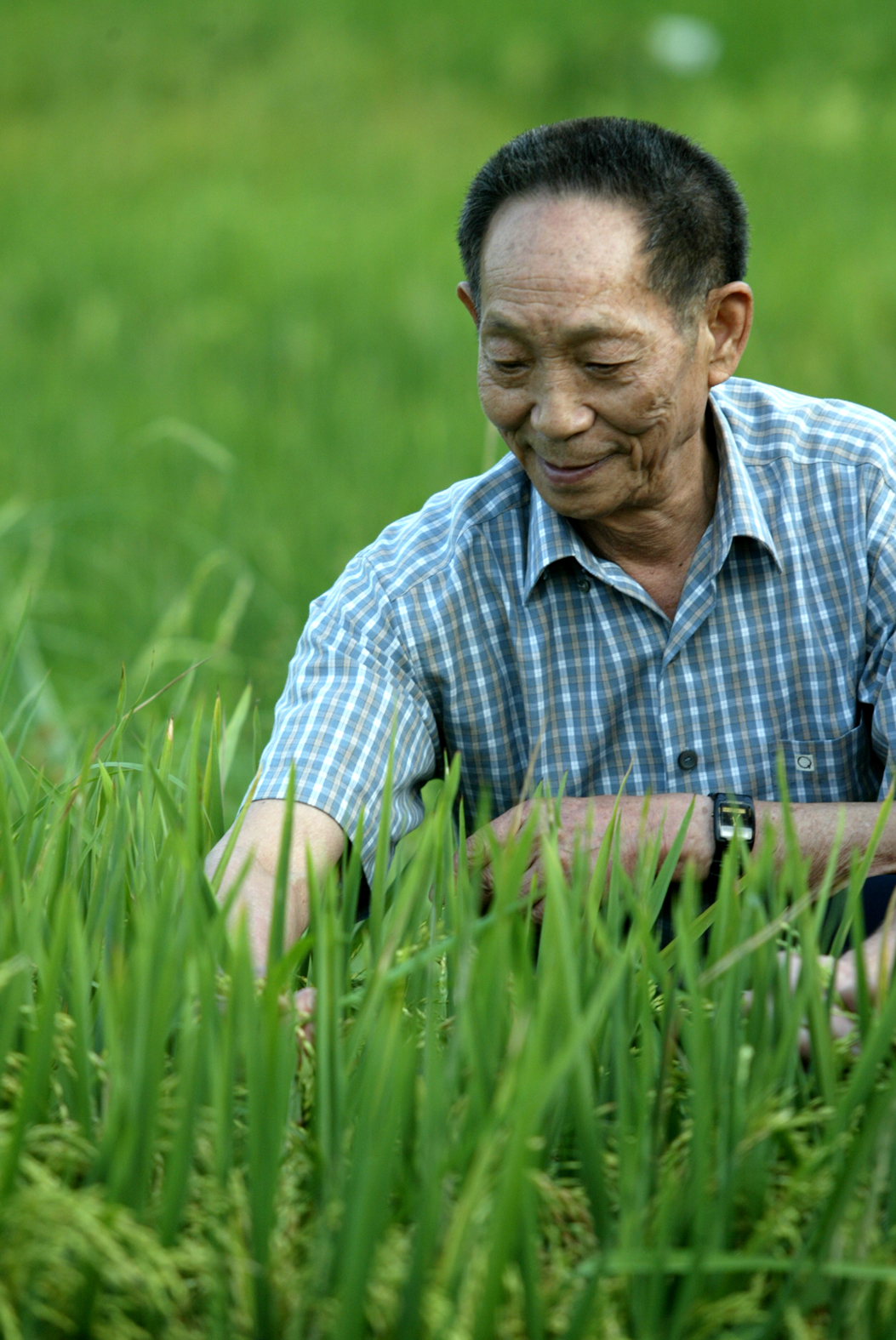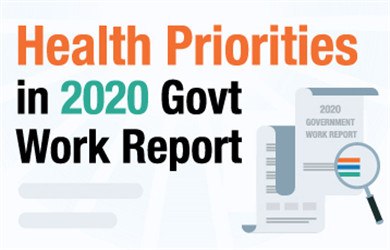President emeritus of the World Food Prize's statement on passing of Yuan Longping

Yuan Longping checks rice at a base in South China's Hainan province, on April 2, 2004. [Photo by Huang Yiming/chinadaily.com.cn]
Editor's note: Yuan Longping, a Chinese scientist who developed higher-yield rice varieties that helped feed people around the world, passed away in Changsha, China, on Saturday, at 91. Kenneth M. Quinn, president emeritus of the World Food Prize, vice-chairman of the Yuan Longping International Rice Development Forum, and a long-time friend of Yuan, made the following statement on the passing of Yuan.
STATEMENT ON THE PASSING OF PROFESSOR YUAN LONGPING
With the passing of professor Yuan Longping, China and the world have lost one the greatest agricultural scientists on our planet, and I have lost a great friend. In my capacity as vice-chairman of the International Rice Development Forum that professor Yuan created, I wish to extend on behalf of all of the members of the Forum, our deepest sympathy to his family, his colleagues at the China National Hybrid Rice Research Center and all of his many, many admirers in China and across the world.
On a personal basis, it was an incomparable privilege to know professor Yuan and to interact with him over two decades. It was a particular pleasure to travel to Changsha in 2019 to deliver a keynote address at the symposium he organized on China-Africa collaboration in rice research and development and especially to join in celebrating professor Yuan's 90th birthday.
Several years earlier, I was honored to participate at an International Rice Development Forum event he organized at Sanya in China's Hainan province. Following the conference, one of professor Yuan's most valued research colleagues, Xin Yeyun, guided me to see the area in which professor Yuan made his initial breakthrough discovery in the early 1970s regarding hybrid rice. It was deeply meaningful to stand at the very place where such an amazing breakthrough in food production had occurred. I then visited the Sanya Rice Park in which his achievements are recognized by a special monument, to which President Xi Jinping made a special visit in 2018.
One year later in a ceremony in Beijing, President Xi presented the Medal of the Republic to professor Yuan in recognition of his enormous contribution to China's food security and uplifting people out of poverty over the past 70 years. This extraordinary recognition was a matter of enormous pride for all of us who knew and worked with professor Yuan.
My first interaction with professor Yuan came in 2004 when he traveled to Des Moines, Iowa to receive the World Food Prize. As president of that Foundation, I had the inestimable honor of presiding at the ceremony at which our founder Norman Borlaug presented the Laureate sculpture to professor Yuan. In an iconic photograph from that event, those two men, two of the greatest plant scientists in all human history, are juxtaposed as the Father of the Green Revolution" presents the "Nobel Prize for Food and Agriculture" to the "Father of Hybrid Rice." Even 100 years from now, that image will still represent one of the greatest moments in the history of agriculture.
Having worked closely with both individuals, I can attest that they shared several characteristics that make them truly inspirational figures fo the ages. Like Borlaug, professor Yuan was incredibly humble, never seeking fame or adulation, rather focused only on hard work and results that could help eradicate poverty and uplift people out of hunger.
Professor Yuan, similarly, believed deeply in the power of science as the multiplier of the harvest. Using research and trials at his national center, he continued up until his final days to produce increasingly higher yielding super hybrid plants, with panicles so filled with grain that they bend over giving the appearance of a waterfall of rice.
Reflecting his achievements that were developed in rice paddies closely observing and improving plants just as Chinese farmers do, professor Yuan always maintained a "down to earth" attitude. He always seemed more at home in a farm field than an office, and was most comfortable in his working clothes, just as Norman Borlaug was.
Finally, professor Yuan was a teacher. He always had time to answer questions and especially to speak with young scientists and students. The American high school student we sent to his research center each year always returned filled with knowledge and a deep desire to learn more.
Perhaps the most remarkable aspect of professor Yuan Longping's life that I observed was that everyone in China knew who he was and what he had done. Not just agricultural specialists or public officials, but every person doing ordinary jobs totally unrelated to farming. On dozens of occasions, I would ask individuals I met during my travels around China whether they knew who Yuan Longping is and what he had done. And on every occasion, every person I spoke with -- servers in restaurants in Shenzhen, hotel staff in Shijiazhuang and refreshment purveyors on the high-speed trains -- all knew his name and that Yuan Longping had made amazing accomplishments in rice production. In fact, the first person to alert me over WeChat to his passing was a young tourist agency staff member from Sanya.
In March of 2021, as a strategic advisor to the US Heartland China Association, I delivered an opening address at the US-China Agriculture Roundtable. Our goal was to improve Sino-American relations through enhanced cooperation addressing the global challenges in global food security, climate change and pandemic diseases. I invited professor Yuan to speak, but he was unable to do so.
In my remarks, I invoked the accomplishments of professor Yuan Longping to inspire all of the participants in our four day symposium. In what had to be one of his very last endeavors, professor Yuan once again helped achieve success. Such is the power of his legacy.
Professor Yuan Longping, who was truly beloved in his country and by all of us who knew him, will be greatly missed. His legacy will provide inspiration to generations far into the future, in China and across the world.


